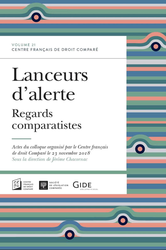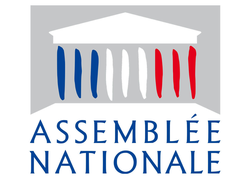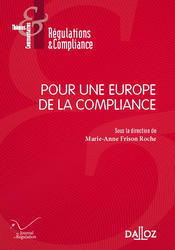June 18, 2021
Compliance: at the moment

► Law is slow, but firm. By its judgment of June 15, 2021, Facebook , the European Union Court of Justice widely interprets the powers of National Authorities, since they serve the people protection in the digital space (➡️📝(CJEU, June 15, 2021, Facebook).
Law is slow. The reproach is so often made. But the bottom line is that, in the noise of changing regulations, it establishes clear and firm principles, letting everyone know what to stand for. The more the world is changing, the more Law is required.
When Law degenerates into regulations, then it is up to the Judge to make Law. "Supreme Courts" appear, de jure as in the United States, de facto as in the European Union by the Court of Justice of the European Union which lays down the principles, before everyone else, as it did for the "right to be forgotten" in 2014 (➡️📝CJEU, Google Spain, May 13, 2014), and then with the impossibility of transferring data to third countries without the consent of the people concerned (➡️📝CJEU, Schrems, October 6, 2015).
Facebook litigation is kind of a novel. The company knows that it is above all to the Courts that it speaks. In Europe, it is doing it behind the walls of the Irish legal space, from which it would like to be able not to leave before better dominating the global digital space, while national regulatory authorities want to take it to protect citizens.
There is therefore a technical question of "jurisdictional competence". The texts have provided for this, but Law is clumsy because it was designed for a world still anchored in the ground: the GDPR of 2016 therefore organizes cooperation between national regulatory authorities through a "one-stop-shop", forcing the authorities to relinquish jurisdiction so that the case is only handled by the "lead" National Authority. This avoids splintering and contradiction. But before the adoption of the GDPR, the Belgian data protection regulator had opened a procedure against Facebook concerning cookies. The "one-stop-shop" mechanism, introduced in 2016, is therefore only mentioned before the Brussels Court of Appeal, which is asked to relinquish jurisdiction in favor of the Irish Regulatory Authority, since the company has in Europe its head office in this country. The Court of Appeal referred to the CJEU for a preliminary ruling.
By its judgment of June 15, 2021 (➡️📝CJUE, Facebook, June 15, 2021), it follows the conclusions of its Advocate General and maintains the jurisdiction of the Belgian National Regulator because, even after the GDPR, the case still undergoes national treatment. In this decision, the most important is its reasoning and the principle adopted. The Court notes that the "one-stop-shop" rule is not absolute and that the national regulatory authority has the power to maintain its jurisdiction, in particular if cooperation between national authorities is difficult.
Even more, will it not one day have to adjust Law more radically? We need to consider the fact that the digital space is not bound by borders and that the ambition of "cross-border cooperation" is ill-suited. It is of course on this observation of inefficiency, consubstantial with the digital space, that the European Public Prosecutor's Office (EPPO) was designed and set up, which is not a cooperation, nor a "one-stop shop", but a body of the Union, acting locally for the Union, directly linked to Compliance concerns (➡️📝Frison-Roche, M.-A. "The European Public Prosecutor's Office is a considerable contribution to Compliance Law", 2021 and ., European Public Prosecutor's Office comes on stage: the company having itself become a private prosecutor, are we going towards an alliance of all prosecutors ?, 2021).
So that's what we should be inspired by.
June 14, 2021
Compliance: at the moment

► Do Compliance and Democracy have a relationship? China replies: no. Europe responds and must respond: they are intimate. The definition of Compliance Law is therefore essential.
In an interview of great clarity given in French to the Newspaper Les Echos on June 2, 2021, about Brexit, China and Russia (➡️📝 "Brexit, Chine, Russie : les confidences de la diplomate Sylvie Bermann"), Sylvie Bermann reminds the evolution of China. She sums up the situation as follows: « La Chine ne veut pas dominer le monde, elle veut être la première et surtout qu'on ne puisse pas lui imposer un système, la démocratie » ("China does not want to dominate the world, it wants to be the first and above all that no one can impose on it a system, Democracy,").
This is reflected in China's conception of Compliance Law. If one defines Compliance Law only as a "method" for the effectiveness of rules, consisting of a kind of "Ex Ante enforcement process" leading to 100% effectiveness of regulations by subjects who must show to everyone the respect they have for these regulations and who are rewarded by this proof thus given, then China, in its current use of Law, illustrates exactly this definition: subjects, individuals and companies, prove their "obedience" to rules - whatever the rules" substantial content -, which is evaluated ("rating") and rewarded, in a mechanical reign of the Ex Ante, served by technologies. Democratic mechanisms are not required; they are even disturbed, because they interfere with the efficiency of the system. The technological and purely technocratic conception of Compliance ("Regulation by data", for example) uses the same definition of Compliance Law, which leads to choose algorithms’ efficiency.
Europe must keep going to make another choice: European Compliance was born out of the Court of Justice of the European Union’s case law, in the 2014 judgment, Google Spain (➡️📝CJEU, Google Spain, May 13, 2021), to protect the person by inventing a subjective right: the right to be forgotten, in a digital space with infinite memory. Based on the Rule of Law, Compliance Law is then defined by its Monumental Goals, which are the protection of people and puts the judge at the center. It is the reverse of Chinese mechanics.
Therefore, they are definitions that lead the world: about the definition of Compliance Law by "Monumental Goals", see ➡️📅 the 2021 cycle of colloquia co-organized by the Journal of Regulation & Compliance (JoRC) and its university partners on Monumental Goals; on the technical influence of this definition on "Compliance tools" ➡️📕see Frison-Roche, M.-A., Legal Approach to Compliance Tools: Building by Law the unity of Compliance Tools from the definition of Compliance Law by its "Monumental Goals", 2021.
Nov. 25, 2020
Thesaurus : 06.1. Textes de l'Union Européenne
Full reference: Directive (EU) 2020/1828 of the European Parliament and of the Council of 25 November 2020 on representative actions for the protection of the collective interests of consumers and repealing Directive 2009/22/EC
Nov. 23, 2020
Interviews

Full reference: Frison-Roche, M.-A., Facebook: Quand le Droit de la Compliance démontre sa capacité à protéger les personnes (Facebook: When Compliance Law proves its ability to protect people), interview with Olivia Dufour, Actu-juridiques Lextenso, 23rd of November 2020
Read the interview (in French)
Read the news of the Newsletter MAFR - Law, Compliance, Regulation about this question
Nov. 18, 2020
Conferences
🎥Compliance Law, an adequate legal framework for GAIA-X, in 🧮GaiaX Summit2020, The World with GAIA-X

► Full Reference: M.-A. Frison-Roche, "Compliance Law, an adequate legal framework for GAIA-X", in Pan-European GAIA - X Summit, The World with GAIA-X, November18, 2020.
____
🧮See the general presentation of the Summit
____
📈See the slides, basis of this intervention.
____
► Summary of the intervention: Europe may offer an adequate legal framework for the GAIA-X project through Compliance Law. Compliance Law is a new form for Regulatory Law, driven by "Monumental Goals", negative Monumental Goals, for instance prevention of systemic failures, and positive Monumental Goals, for instance innovation or stability. This very new branch of Law works on these Monumental Goals, which must be explicit and internalized in Crucial Enterprises. These Crucial Enterprises concretize these Goals, supervised by public Authorities.
European Compliance Law already works, for instance about Personal Data protection (case law and GDPR) or prevention banking systemic failures (Banking Union), Compliance Tools being in balance with Competition principle. European Union Law is moving from the Ex-Post Competition Law to the Ex-Ante Compliance Law, internalizing Monumental Goals in Crucial Enterprises.
There is a perfect adequacy between European Compliance Law and GAIA-X. This project built by Crucial Enterprises must be supervised by public authority, maybe a specific or the European Commission. The governance of GAIA-X must be transparent and accountable. This private organization must use it powers in respect of the proportionality principle, controlled by the public supervisory body. The legal framework is required but it is sufficient.
___
📈see the slides, basis of this intervention.
____
🎥watch the video of this intervention.
________
Nov. 1, 2020
Newsletter MAFR - Law, Compliance, Regulation

Full reference: Frison-Roche, M.-A., Due process and Personal Data Compliance Law: same rules, one Goal (CJEU, Order, October 29, 2020, Facebook Ireland Ltd v/ E.C.), Newsletter MAFR - Law, Compliance, Regulation, 1st of November 2020
Read by freely subscribing other news of the Newsletter MAFR - Law, Compliance, Regulation
Read Marie-Anne Frison-Roche's interview in Actu-juridiques about this decision (in French)
Summary of the news:
As part of a procedure initiated for anti-competitive behaviors, the European Commission has three times requested, between the 13th of March and the 11th of November 2019, from Facebook the communication of information, reitarated in a decision in May 2020.
Facebook contests it alleging that the requested documents would contain sensitive personal information that a transmission to the Commission would make accessible to a too broad number of observers, while "the documents requested under the contested decision were identified on the basis of wideranging search terms, (...) there is strong likelihood that many of those documents will not be necessary for the purposes of the Commission’s investigation".
The contestation therefore evokes the violation of the principles of necessity and proportionality but also of due process because these probatory elements are collected without any protection and used afterwards. Moreover, Facebook invokes what would be the violation of a right to the respect of personal data of its employees whose the emails are transferred.
The court reminds that the office of the judge is here constraint by the condition of emergency to adopt a temporary measure, acceptable by the way only if there is an imminent and irreversible damage. It underlines that public authorities benefit of a presumption of legality when they act and can obtain and use personal data since this is necessary to their function of public interest. Many allegations of Facebook are rejected as being hypothetical.
But the Court analyzes the integrality of the evoked principles with regards with the very concrete case. But, crossing these principles and rights in question, the Court estimates that the European Commission did not respect the principle of necessity and proportionality concerning employees' very sensitive data, these demands broadening the circle of information without necessity and in a disproportionate way, since the information is very sensitive (like employees' health, political opinions of third parties, etc.).
It is therefore appropriate to distinguish among the mass of required documents, for which the same guarantee must be given in a technique of communication than in a technic of inspection, those which are transferable without additional precaution and those which must be subject to an "alternative procedure" because of their nature of very sensitive personal data.
This "alternative procedure" will take the shape of an examination of documents considered by Facebook as very sensitive and that it will communicate on a separate electronic support, by European Commission's agents, that we cannot a priori suspect to hijack law. This examination will take place in a "virtual data room" with Facebook's attorneys. In case of disagreement between Facebook and the investigators, the dispute could be solved by the director of information, communication and medias of the Directorate-General for Competition of the European Commission.
___
We can draw three lessons from this ordinance:
- This decision shows that Procedural Law and Compliance Law are not opposed. Some often say that Compliance guarantees the efficacy and that Procedure guarantees fundamental rights, the protection of the one must result in the diminution of the guarantee of the other. It is false. As this decision shows it, through the key notion of sensitive personal data protection (heart of Compliance Law) and the care for procedure (equivalence between communication and inspection procedures; contradictory organization of the examination of sensitive personal data), we see once again that two branches of Law express the same care, have the same objective: protecting people.
- The judge is able to immediately find an operational solution, proposing "an alternative procedure" axed around the principle of contradictory and conciliating Commision's and Facebook's interests has shown that it was able to bring alternative solutions to the one it suspends the execution, appropriate solution to the situation and which equilibrate the interest of both parties.
- The best Ex Ante is the one which anticipate the Ex Post by the pre-constitution of evidence. Thus the firm must be able to prove later the concern that it had for human rights, here of employees, to not being exposed to sanctioning pubic authorities. This Ex Ante probatory culture is required not only from firms but also from public authorities which also have to give justification of their action.
__________
Oct. 22, 2020
Interviews

Full reference: Frison-Roche, M.-A., "Health Data Hub est un coup de maître du Conseil d'Etat", interview realized by Olivia Dufour for Actu-juridiques, Lextenso, 22nd of October 2020
Read the news of 19th of October 2020 of the Newsletter MAFR - Law, Compliance, Regulation on which relies this interview: Conditions for the legality of a platform managed by an American company hosting European health data: French Conseil d'Etat decision
To go further, on the question of Compliance Law concerning Health Data Protection, read the news of 25th of August 2020: The always in expansion "Right to be Forgotten": a legitimate Oxymore in Compliance Law built on Information. Example of Cancer Survivors Protection
Oct. 19, 2020
Newsletter MAFR - Law, Compliance, Regulation

Full reference: Frison-Roche, M.-A., Conditions for the legality of a platform managed by an American company hosting European health data: French Conseil d'Etat decision, Newsletter MAFR - Law, Compliance, Regulation, 19th of October 2020
Read by freely subscribing the other news of the Newsletter MAFR - Law, Compliance, Regulation
___
News Summary: In its ordinance of 13th of October 2020, Conseil national du logiciel libre (called Health Data Hub), the Conseil d'Etat (French Administrative Supreme Court) has determined the legal rules governing the possibility to give the management of sensitive data on a platform to a non-europeans firm, through the specific case of the decree and of the contract by which the management of the platform centralizing health data to fight against Covid-19 has been given to the Irish subsidiary of an American firm, Microsoft.
The Conseil d'Etat used firstly CJEU case law, especially the decision of 16th of July 2020, called Schrems 2, in the light of which it was interpreted and French Law and the contract linking GIP and
The Conseil d'Etat concluded that it was not possible to transfer this data to United-Sates, that the contract could be only interpreted like this and that decree and contract's modifications secured this. But it observed that the risk of obtention by American public authorities was remaining.
Because public order requires the maintenance of this platform and that it does not exist for the moment other technical solution, the Conseil d'Etat maintained the principle of its management by Microsoft, until a European operator is found. During this, the control by the CNIL (French Data Regulator), whose the observations has been taken into consideration, will be operated.
We can retain three lessons from this great decision:
- There is a perfect continuum between Ex Ante and Ex Post, because by a referred, the Conseil d'Etat succeed in obtaining an update of the decree, a modification of the contractual clauses by Microsoft and of the words of the Minister in order to, as soon as possible, the platform is managed by an European operator. Thus, because it is Compliance Law, the relevant time of the judge is the future.
- The Conseil d'Etat put the protection of people at the heart of its reasoning, what is compliant to the definition of Compliance Law. It succeeded to solve the dilemma: either protecting people thanks to the person to fight against the virus, or protecting people by preventing the centralization of data and their captation by American public authorities. Through a "political" decision, that is an action for the future, the Conseil found a provisional solution to protect people against the disease and against the dispossession of their data, requiring that an European solution is found.
- The Conseil d'Etat emphasized the Court of Justice of The European Union as the alpha and omega of Compliance Law. By interpreting the contract between a GIP (Public interest Group) and an Irish subsidy of an American group only with regards to the case law of the Court of Justice of European Union, the Conseil d'Etat shows that sovereign Europe of Data can be built. And that courts are at the heart of this.
___________
Read the interview given on this Ordinance Health Data Hub
To go further about the question of Compliance Law concerning health data protection, read the news of 25th of August 2020: The always in expansion "Right to be Forgotten": a legitimate Oxymore in Compliance Law built on Information. Example of Cancer Survivors Protection
Oct. 9, 2020
Newsletter MAFR - Law, Compliance, Regulation

Full Reference : Frison-Roche, M.-A.,Attorney's Professional Secret & Filter mechanism in balance with fighting Money Laundering: constitutional analysis in favor of Attorney's Secret, Newsletter MAFR - Law, Compliance, Regulation, October 9, 2020.
Summary: By its judgment of September 24, 2020, the Constitutional Court of Belgium released an essential judgment which considers:
- Compliance Law which imposes obligations on entities to fight against money laundering and the financing of terrorism is legal requirements which must be analyzed on the basis of these goals
- the national transposition law is "broader" than the transposed European texts since it is anchored in the Constitution
- the provisions of the law imposing the declaration of suspicion on an employee of the Attorney or on a Compliance Officer concerning information covered by the professional secrecy of the Attorney, the basis of Democracy, must therefore be canceled.
This reasoning is remarkable and very solid.
It is not unique to Belgium.
Lire par abonnement gratuit les autres News dans la Newsletter MAFR - Law, Compliance, Regulation
Oct. 6, 2020
Thesaurus : 05. CJCE - CJUE
Full reference: CJEU, Grand Chamber, 6th of October 2020, Privacy International c/ Secretary of State for Foreign and Commonwealth Affairs, C-623/17.
Read the summary of the judgment (in French)
Sept. 28, 2020
Thesaurus : Soft Law
Full reference: Giuliani-Viallard, A., The Europe of Compliance, at the heart of tomorrow's world. For a transformation of our European businesses and the upturn in their international competitiveness, European Issue, n°572, policy paper from the Robert Schuman Foundation, 28th of September 2020, 3 p.
Sept. 9, 2020
Newsletter MAFR - Law, Compliance, Regulation

Full reference: Frison-Roche, M.-A., Freedom&Media: when Italian Media Regulation's real "goal" is not Pluralism Protection, Freedom of Establishment prevails (CJEU, 3 Sept.2020,Vivendi), Newsletter MAFR - Law, Regulation, Compliance, 9th of September 2020
Read by freely subscribing other news of the Newsletter MAFR - Law, Regulation, Compliance
Summary of the news
The media sector is organized on an equilibrium between the principle of competition and other concerns like information pluralism. Generally, competition Law by making market accessible to many competitors ensures information pluralism. But, this is not the case if an operator get an excessive market power, running risk not only for competition but also for information pluralism. It is the reason why the Italian legal system forbids the constitution of an operator gathering more than 40% of the total income generated by the media sector or more than 10% of the total income generated by the Italian communication sector.
In 2016, Vivendi, a French media group, got more than 28% of the Mediaset Group's actions and around 30% of its voting right. The Italian communication regulation authority sized by Mediaset demands in 2017 to Vivendi to ends its participations in the group Mediaset. Vivendi contested this decision before the regional administrative court which referred to the Court of Justice of the European Union in order to know if freedom of establishment can legitimately be discarded in favor of information pluralism in this concrete case. The Court of Justice answered, in a decision of 3rd of September 2020, that the restriction of the freedom of establishment can in principle be justified by a general interest objective such as information pluralism protection but that in this concrete case, this is not justified because the fact that a firm is committed in the transmission of contents does not necessarily give it the power to control the production of such contents.
We can learn three lessons form this case:
- The Court precises that even if the principle is the freedom of establishment, it is possible to discard it to protect information pluralism protection under the condition that the concerned member State do not use this legitimate power to create a political monopoly, the burden of proof falling on the person attacking national legislation and not on the Member State.
- The Court distinguishes transmission of contents and production of contents and explains that if the State rejects this decision, the burden falling to it to prove the concrete links between these two activities.
- This case shows that the power to share the respective places of the "principle" and of the "exception" always comes back to the judges.
Sept. 7, 2020
Newsletter MAFR - Law, Compliance, Regulation

Full reference: Frison-Roche, M.-A., Conflict of interests & "revolving doors": what the European Ombudsman said in May 2020, the European Banking Authority agreed in August.Three lessons, Newsletter MAFR - Law, Compliance, Regulation, 7th of September 2020
Read by freely subscribing other news of the Newsletter MAFR - Law, Compliance, Regulation
Summary of the news:
Supervision and regulation authorities' impartiality and independence are conditioned to the fact that their members do not have any conflict of interest with the sector that they supervise or regulate. Such an absence of conflict of interest is necessary to guarantee a climate of trust between the authority and operators. This supposes that regulation and supervision authority members do not cumulate functions of operator and of regulator/supervision during but also after their mandate in the regulation/supervision authority because the anticipation of a future hiring can influence present decisions.
On 2nd of August 2019, the executive director of the European Banking Authority (EBA) informed the authority of its willingness to become PDG of the Association des marchés financiers en Europe, lobby of the financial sector. EBA approved this perspective. However, "Change Finance", a civil coalition, sized the European Mediator explaining that such a professional reorientation created an inevitable conflict of interest. The European Mediator reacted on 7th of May 2020 through a recommendation saying that although EBA took preventive measures, theses measures are not sufficient with regard to the risks. In this recommendation, the European Mediator also made some general propositions to manage future conflicts of interest:
- The interdiction for senior managers to have positions able to create a conflict of interest for two years.
- The information of senior managers and candidates to senior managers positions of the actual rules.
- The implementation of internal procedures blocking access to confidential information to the member who notified its willingness to occupy later a position able to constitute a conflict of interest with its current position.
In a letter of 28th of August 2020, the president of EBA told to the European Mediator that he accepts these remarks and propositions.
In this particular case, we can draw three lessons:
- The difficult articulation between independence/impartiality (necessary for trust) and regulator/supervisor expertise. The European Mediator and the ABE are agree that the interdiction to get some positions must be limited in time.
- The necessity that everyone can anticipate rules correctly.
- The necessity to preserve legal security.
June 17, 2020
Thesaurus : Soft Law
Full reference: White Paper on Leveling the Playing Field as Regards Foreign Subsidies adopted by European Commission on 17th of June 2020, 49p.
May 28, 2020
Publications

Full reference: Frison-Roche, M.-A., L'impossible unicité juridique de la catégorie des "lanceurs d'alertes" ("The impossible legal unicity of the category of "whistleblowers""), in Chacornac, J. (dir.), Lanceurs d'alertes, regards comparatistes, ("Whistleblowers, comparative perspectives"), Publications of the Centre français de droit comparé ("French Comparative Law Center"), May 2020, Volume 21, p.13-31.
Read the article (in French).
Read the general presentation of the collective book in which this article is published
Read the bilingual working paper which had served of basis for this article.
Read the presentation of the conference "Les lanceurs d'alertes: glose" (Whistleblowers: glose") and especially the slides elabored for the colloquium organized by the Centre français de droit comparé ("French Comparative Law Center") on 23th of November 2018 under the direction of Jérôme Chacornac
____
Introduction of the article
"Whistleblowers". This is a new expression. Which is a great success. Barely heard once, we hear it everywhere ...
A topic not of course or knowledge test, but rather a topic of daily conversation. Because it is spoken to us every day, in more or less gracious terms. For example President Donald Trump on October 1, 2019 declared to the press "want to question" the whistleblower who would have illegally denounced him and would not, according to him, have the right to conceal his identity, proof in this according to him of the lying character of his assertions against him, while his lawyer indicates on October 6, 2019 that he is not speaking on behalf of a single whistleblower thus taken to task but of a plurality of people who gave information against the President of the United States. Even the most imaginative screenwriters would not have written such brutal and rapid twists and turns. Spectators, we are waiting for the next episode, secretly hoping for the escalation.
And precisely if we go to the cinema, it is still a whistleblower whose dedication and success, we are told about, even the drama, for the benefit of global society, and in particular democracy, since the secrets are fought for the benefit of the truth. The Secret Man designates Mark Felt as the first whistleblower. Returning to what we often present as being a more "serious" media!footnote-1391, we listen to France-Culture and here is another story told by a historian who worked as an archivist on events that political power would have liked to keep hidden by possibly destroying their traces but which its trade led to preserve: here it is expressly presented to the studious listeners like a "whistleblower" .... While the same radio tries to find the one who could well be, as in a kind of contest the "first whistleblower"!footnote-1727? .... This rewriting of History can be defended because ultimately what did other Voltaire do for Calas, or Zola for Dreyfus?
It is also a subject of legislative discussion since in the United States the Dodd-Frank law of 2010 inserted in the law of 1934 which established the Securities & Exchanges Commission a complete device of remuneration and remuneration of the whistleblowers, whereas after having developed flexible but guiding lines in this regard in 2012!footnote-1698, the European Commission published on November 20, 2018 the text of what will become a Directive intended to give a unified European status to the character, in the system gradually developed to protect the one who was presented in 2018 as that "cannot be punished for having done what is right".
In Europe, the Directive first approved by a Resolution of the European Parliament on April 16, 2019 on the protection of persons denouncing breaches of Union Law and then adopted on October 7, 2019 (Directive of the European Parliament and of the Council of European Union on the Protection of Persons who Report Violations of European Union Law, different title, it should be noted, will have to be transposed into the laws of the Member States within the next two years. , since only "violations of Union Law" are targeted, but the character of the "whistleblower" is more generally targeted: he is "whole"!footnote-1699.
In short, the whistleblower is a star!footnote-1390. A sort of historical figure, covered in blows and glory, going from Voltaire to Snowden, both of whom find themselves embodied on the screens!footnote-1681 ....,
Consecrated by law, which associates with it a legal regime of protection to such an extent that, like a Nessus tunic, it is this legal regime which will define the character and not the reverse. When we read the law of December 9, 2016 relating to transparency in the fight against corruption and the modernization of economic life, known as "Sapin 2", we notice that the Legislator makes much of this character, since 'he dedicates its chapter II to him!footnote-1682: "From the protection of whistleblowers", and that it is by his very protection that he formally opens the door of Right to him.
But why a plural? Admittedly when we read the recitals of the Community Directive of October 7, 2019 on the protection of whistleblowers!footnote-1702, it is only a list of all the subjects on which it is a good idea to protect them, which therefore prompts us to see in this plural only the index of this non-exhaustive list of subjects which it is good to tell us, a sign of the lack of definition of who should alert us. Reading the French law known as "Sapin 2" makes it less severe but more perplexing. Indeed, this plurality referred to by the title of the chapter devoted to "whistleblowers", there is no longer any question in the rest of the law, in the very definition which follows, article 6 which opens this chapter devoted to "whistleblowers" offering the reader immediately a singular since it begins as follows: "A!footnote-1684 whistleblower is a person ...". No mention of diversity. The art of legislative writing would however have required that the qualifying article not only be singular but that it should not yet be undefined. Stendhal if he had still deigned to have the law for bedside book would have wanted to find at the beginning of chapter a sentence like: "The!footnote-1683 whistleblower is a person ...".
Thus seem to contradict themselves within the law "Sapin 2 the very title which presents the character, in that it uses a defined plural (the) while the defining article which presents it is in the undefined singular (one). ...
Here is a first reason not to advance any more but in a very careful way, in this "step by step" that constitutes a reading word for word: a gloss. This consists of taking the expression itself literally. The second reason for this technical choice is that the gloss is well suited to the introduction of a collective work, thus allowing more targeted developments to take place in other contributions, on the techniques, the difficulties and the limits of this protection, or on its history, or the reasons for the arrival in French law of these whistleblowers and the way they develop, or not, elsewhere.
I am therefore going to content myself with taking this already legal expression to the letter: The (I) whistle (III). blowers (II).
May 22, 2020
Thesaurus : Doctrine
Full reference: Support, A., "La refondation de l'Europe ne pourra se faire sans sortir des traités actuels" ("The refoundation of Europe cannot be done without leaving the current treaties"), column in Le Figaro, 22nd of May 2020
Read Alain Supiot's column (in French)
In this column, Alain Supiot underlines the opportunity offered by the judgment of the Court of Karlsruhe of May 5, 2020 concerning the proportionality of the unconventional monetary measures adopted by the ECB.
May 8, 2020
Thesaurus : Doctrine
Full reference: Pistor, K., Germany Constitutional Court Goes Rogue, Project Syndicate, 8th of May 2020

Updated: Oct. 8, 2019 (Initial publication: Nov. 22, 2018)
Publications

This working paper served as a basis for a conference done in French for the Centre de droit comparé (Center for Comparative Law) in Paris on 23 November 2018.
Updated, it has served as a basis for an article published in French in a book of the Société de Législation comparé (Society of Comparative Legislation).
________
"The whistleblowers". This is a new expression. Which wins a full success. Barely heard once, we hear it everywhere ...
A theme not only of academic teaching, but rather a topic of daily conversation. Because it is every day that we speak about it, in terms more or less graceful. For example President Donald Trump on October 1, 2019 told the press he "wants to interrogate" the whistleblower who would have unlawfully denounced him and would not have, according to him, the right to conceal his own identity, evidence in this according Donald Trump of the false character of his assertions against him, while his lawyer indicates on October 6, 2019 that he does not speak on behalf of a single whistleblower thus taken apart but of a plurality people who gave information against the President of the United States. Even the most imaginative scriptwriters would not have written twists as abruptly or so fast. Spectators, we wait for the next episode, secretly hoping for climbs and slashs.
Precisely if we go to the cinema, it is still a whistleblower whose dedication and success, or even drama, we are told, for the benefit of the global society, and especially of Democracy, since the secrets are fought for the benefit of the truth. Thus, the movie The Secret Man designates Mark Felt as the first whistleblower. Returning to what is often presented as a more "serious" media, for example in France the radio "France Culture" we can learn the story of a historian who worked as an archivist on events that the political power would have wanted to keep hidden by possibly destroying their traces but that his profession led to preserve
It is also a topic of legislative debate since in the United States the Dodd-Frank Act of 2010 inserted in the 1934 law that established the Securities & Exchanges Commission (SEC) a complete system for retribution and remuneration of whistleblowers, while after elaborating guidelines about about in 2012
In Europe, the Directive first approved by a Resolution of the European Parliament on 16 April 2019 on protection of persons reporting breaches of Union law and then adopted on 7 October 2019 (Directive 2019/78 (EU) of the European Parliament European Union and the Council of the European Union on the Protection of Persons Reporting Breaches of Union law, will have to be transposed in the next two years to the legal systems of the Member States. is not general, since only "violations of European Union Law" are targeted but the character of the "whistleblower" is more generally referred to: it is "whole"
In short, the whistleblower is a star
Recognized by national legislations, which associate to him a legal regime of protection to such a point that, like a tunic of Nessus, it is this legal regime which will define his character and not the opposite. When we read the French law of December 9, 2016 relative à la transparence à la lutte contre la corruption et à la modernisation de la vie économique (on transparency in the fight against corruption and the modernization of economic life), usually known as "Sapin 2 Act", we note that the lawmaker makes much of this character, because he devotes to him the chapter II: "De la protection des
But why a plural? Certainly when we read the recitals of the European Directive of 7 October 2019 on the protection of whistleblowers
Thus seem to contradict in this law "Sapin 2" itself the very title which presents the character, in that it uses a definite plural ("the whistleblowers") while the article of definition which presents the topic does it by using the singular indefinite : "a whistleblower....".
This is a first reason to move forward only in a very cautious way, in this "step by step" that constitutes a word-by-word reading: a gloss. This method consists in taking literally the expression itself. The second reason for this technical choice is that the gloss is well suited to an introduction of a collective work, allowing more specific developments to take place in other contributions, for example on the techniques, the difficulties and the limits of this protection, or the history of it, or the reasons for the arrival in French law of these American or Brithish whistleblowers and the way they develop, or not, in other legal systems or other countries.
I will therefore content myself with taking again literally this already legal expression: The (I) launchers (II) of alert (III).
See below developments.
On the more general fact that cinema is undoubtedly the medium which most seriously restores the state of the Law, c. Frison-Roche, M.-A., Au coeur du Droit, du cinéma et de la famille : la vie, 2016.
L'histoire du premier lanceur d'alerte, France Culture, septembre 2019.
European Commission, Guidelines on Whistleblowing, 6 of December 2012, SEC(2012) 679 final, updated on 23 of April 2018.
However, precisely the so common use of plurality ("whistleblowers") raises doubts about the uniqueness of the character. On this question, see. all the first part of the developments of this study, which leads to the conclusion rather than beyond the multitude of particular cases, there are rather two kinds of whistleblowers. V. infra I.
The director of the film La fille de Brest says that she considers the whistleblower at the origin of the case of the Pick as a "movie character".
Thus, the adventures of Snowden were brought to the screen by Oliver Stone in 2016, Snowden. On the question of knowing whether this film "faithfully reproduces" or not the case, Schetizer, P., Le film Snowden est-il à la hauteur de la réalité?, 2017. This article is favorable to the whistleblower, and to the film which tells us with emotion his case, in particular because (sic), it is easier than to read the Washington Post.
Underlined by us.
Underlined by us.
About this directive, v. the developments infra
Underlined by us.
Sept. 27, 2019
Thesaurus : Soft Law
Full reference: Information Note From the European Commission to the Permanent Representatives Committee About the Progress on Combatting Hate Speech Online Through the EU Code of Conduct, Council of the European Union, 27th of September 2019, 7p.
Sept. 24, 2019
Teachings : Compliance Law

Consulter les slides servant de support à la Leçon
Se reporter à la Présentation générale du Cours de Droit de la Compliance.
Consulter le Dictionnaire bilingue du Droit de la Régulation et de la Compliance.
Consulter la Bibliographie générale du Cours de Droit de la Compliance
Consulter la bibliographie ci-dessous, spécifique à cette Leçon relative aux relations entre le Droit de la concurrence et le Droit de la compliance
Résumé de la leçon.
A première vue, le Droit de la concurrence et le Droit de la compliance sont étrangers l'un à l'autre. En effet tandis que, dans son acception classique le premier est Ex Post le second est Ex Ante (se rapprochant ainsi du Droit de la Régulation). Plus encore le Droit de la concurrence est attaché à un organisme spécifique, "l'Autorité de concurrence", ce qui va le rapprocher du Droit de la Régulation, lequel se "repère" par l'institution d'une "Autorité de régulation", alors que le Droit de la compliance est à ce point peu institutionnalisé que l'on continue à douter même de son existence. En troisième lieu, par nature le Droit de la concurrence s'applique à toutes les "entreprises", notion très large en ce qu'elle est directement construite sur la notion d'activité, alors que le Droit de la compliance prend comme sujets de droit les "opérateurs cruciaux".
Mais l'efficacité des techniques de Compliance a été repérée par les Autorités de concurrence qui, notamment à travers les techniques d'engagement et de "programmes" ont eu à partir des années 1990, sur le modèle du contrôle des concentrations, partie Ex Ante du Droit de la concurrence, développé d'une façno prétorienne des outils de compliance, par du "droit souple", puis les ont sécurisé en les insérant au sein même des procédures juridiquement organisées de sanction, les Autorités pouvant utiliser leur double qualité d'autorité de sanction et d'autorité de poursuite. Sans doute ce cumul d'un fonctionnement contractuel au sein de procédure juridictionnelle, par l'utilisation de programmes qui constituent à la fois des engagements spontanés mais sont aussi des contreparties d'autorisation de concentration, voire de contrepartie de clémence, voire des parties insécables de prononcés de sanction, posent à la fin des difficultés juridiques.
Il demeure que par l'insertion du Droit de la compliance c'est un mixte de contrat et de contrainte qui est ainsi inséré.
Par le contrat, qui libère l'Autorité de toute référence à son pouvoir par mécanisme de délégation dans la hiérarchie des normes, l'Autorité peut se transformer en Autorité de Régulation. C'est ce que les Autorités de concurrence sont en train de faire vis-à-vis des opérateurs numériques.
Mais les Autorités de concurrence sont-elles légitimes à emprunter tout d'abord à une contrainte par le biais procédural neutre de l'accroissement d'efficacité, pour ensuite passer à une véritable contractualisation, ce qui permet de disposer des finalités pour la satisfaction desquelle elles ont été instituées ? N'est-ce pas à l'Etat, à travers un Gouvernement responsable politiquement qui doit fixer des finalités qui cessent d'être économiques?
En effet les Autorités de concurrence rendent compte de l'exercice de leurs pouvoirs devant les juridictions du recours. Mais s'agit-il d'un contrôle de légalité externe ou d'un contrôle substantiel ? Cette question qui s'est posée à propos du contrôle des concentrations ne pose de nouveau d'une façon plus générale si la finalité du Droit de la concurrence, telle qu'elle est posée à travers ce que la Commission se permet d'appeler la "politique de la concurrence" devient à ce point politique, sans pour autant engager de responsabilité.
Les Autorités de concurrence qui deviennent ainsi en matière numérique des "superviseurs" alors qu'elles ne sont pas des régulateurs, peuvent prétendre que le Droit de la concurrence serait une des voies pour remettre de l'ordre dans l'espace numérique.
June 26, 2019
Thesaurus : Soft Law

Référence complète : Gauvain, R., Rétablir la souveraineté de la France et de l'Europe et protéger nos entreprises des lois et mesures à portée extraterritoriale, Rapport à la demande du Premier Ministre Monsieur Edouard Philippe, Assemblée nationale, juin 2019, 102 p.
May 29, 2019
Thesaurus : Doctrine

► Full Reference: P. Vimont, "La place de la diplomatie dans l'avancée d'une Europe de la compliance" ("The role of diplomacy in advancing the Europe of the Compliance"), in M.-A. Frison-Roche (ed.), Pour une Europe de la Compliance, series "Régulations & Compliance", Dalloz, 2019, p. 49-52.
____
📕read a general presentation of the book, Pour une Europe de la Compliance, in which this article is published
____
► Summary of the article (done by the Journal of Regulation & Compliance):
____
🦉This article is available in full text to those registered for Professor Marie-Anne Frison-Roche's courses
________
May 29, 2019
Editorial responsibilities : Direction of the collection "Regulations & Compliance", JoRC & Dalloz

♾️ follow Marie-Anne Frison-Roche on LinkedIn
♾️ subscribe to the Newsletter MAFR Regulation, Compliance, Law
____
► Full Reference: M.-A. Frison-Roche (ed.), Pour une Europe de la Compliance (For the Europe of the Compliance), series "Régulations & Compliance", Dalloz, 2019, 124 p.
____
This volume is the continuation of the books dedicated to Compliance in this collection.
📚Read the other books' presentations of the collection about Compliance:
🕴️M.-A. Frison-Roche (ed.), 📕La juridictionnalisation de la Compliance, 2023
🕴️M.-A. Frison-Roche (ed.), 📕Les Buts Monumentaux de la Compliance, 2022
🕴️M.-A. Frison-Roche (ed.), 📕Les outils de la Compliance, 2021
🕴️N. Borga, 🕴️J.-Cl. Marin &🕴️J.-Ch. Roda (ed.), 📕Compliance : l'Entreprise, le Régulateur et le Juge, 2018
🕴️M.-A. Frison-Roche (ed.), 📕Régulation, Supervision, Compliance, 2017
🕴️M.-A. Frison-Roche (ed.),📕 Internet, espace d'interrégulation, 2016
📚Read the presentations of the other titles of the collection.
____
► General presentation of the book: This book is written in French. The topic is : "For the Europe of the Compliance".
See below its general presentation in English.
The political dimension is intrinsic to the Compliance Law. Indeed, compliance mechanisms consist of internalizing in certains companies the obligation to implement goals of general interest set by Public Authorities. These public bodies control the Ex Ante reorganization that implies for these companies and punish Ex Post the possible structural inadequacy of these compagnies, becoming transparent for this purpose.
This new mode of governance establishes a continuum between Regulation, Supervision, Compliance (book published in 2017) and renew the links between Companies, Regulators and Judges!footnote-1600.
This political dimension must be increased: the Compliance Law of Compliance must today be used to build Europe.
One can observe not only the construction of the European Compliance Law, object-by-object, sector-by-sector, purpose-by-purpose, but also the construction of the European Compliance Law that transcends and unifies them. Becoming independent of American Law and ceasing to be in reaction, even on the defensive, the Compliance Law contributes to the European project, offering it a higher ambition, that Europe can carry and, by this way, can carry the Europe itself, not only to preserve the European economy from corruption or money laundering, but by claiming the protection of nature and human beings.
This is why the book describes the "reasons and objectives" of the Europe of the Compliance, which makes it possible to describe, detect and even predict the ways and means.
____
► Understand the book through the Table of Contents and the summaries of each article:
🕴️M.-A. Frison-Roche, 📝Avant propos
🕴️K. Lenaerts, 📝Le juge de l'Union européenne dans une Europe de la compliance
🕴️M.-A. Frison-Roche, 📝Un droit substantiel de la compliance, appuyé sur la tradition européenne humaniste
I. LES RAISONS ET LES OBJECTIFS D'UNE EUROPE DE LA COMPLIANCE (THE REASONS AND OBJECTIVES OF THE EUROPE OF THE COMPLIANCE)
🕴️X. Musca, 📝Construire une Europe de la compliance en donnant une meilleure place aux entreprises
🕴️P. Vimont, 📝La place de la diplomatie dans l'avancée d'une Europe de la compliance
🕴️P. Sellal, 📝Les vertus de la compliance : une réponse possible aux faiblesses de l'Union européenne ?
🕴️J.-J. Daigre, 📝Compliance, entreprise et Europe
II. LES VOIES ET MOYENS D'UNE EUROPE DE LA COMPLIANCE (THE WAYS AND MEANS OF THE EUROPE OF THE COMPLIANCE)
🕴️J.-Cl. Marin, 📝Quels outils pour la construction du droit de la compliance en Europe ?
🕴️M. Canto-Sperber, 📝La compliance et les définitions traditionnelles de la vertu
🕴️T. Bonneau, 📝Compliance et secteur bancaire et financier en Europe
🕴️C. Duchaine, 📝L'Agence française anticorruption, à l'appui de l'Europe de la compliance
🕴️D. Martin, 📝Les contraintes et les vertus de la compliance
🕴️A. de La Cotardière, 📝Construire une Europe de la compliance lisible pour les entreprises
________
May 29, 2019
Thesaurus : Doctrine

► Full Reference : K. Lenaerts, "Le juge de l'Union européenne dans une Europe de la Compliance" ("The Judge of the European Union in the Europe of the Compliance"), in M.-A. Frison-Roche (ed.), Pour une Europe de la Compliance, series "Régulations & Compliance", Dalloz, 2019, p.1-12.
____
📕read a general presentation of the book, Pour une Europe de la Compliance, in which this article is published
____
► Summary of the article (done by the Journal of Regulation & Compliance):
____
🦉This article is available in full text to those registered for Professor Marie-Anne Frison-Roche's courses
________
May 29, 2019
Thesaurus : Doctrine

► Référence complète : J.-J. Daigre, "Compliance, entreprise et Europe" ("Compliance, company and Europe"), in M.-A. Frison-Roche (ed.), Pour une Europe de la Compliance, series "Régulations & Compliance", Dalloz, 2019, p. 61-64.
____
📕read a general presentation of the book, Pour une Europe de la Compliance, in which this article is published
____
► Summary of the article (done by the Journal of Regulation & Compliance):
🦉This article is available in full text to those registered for Professor Marie-Anne Frison-Roche's courses
________